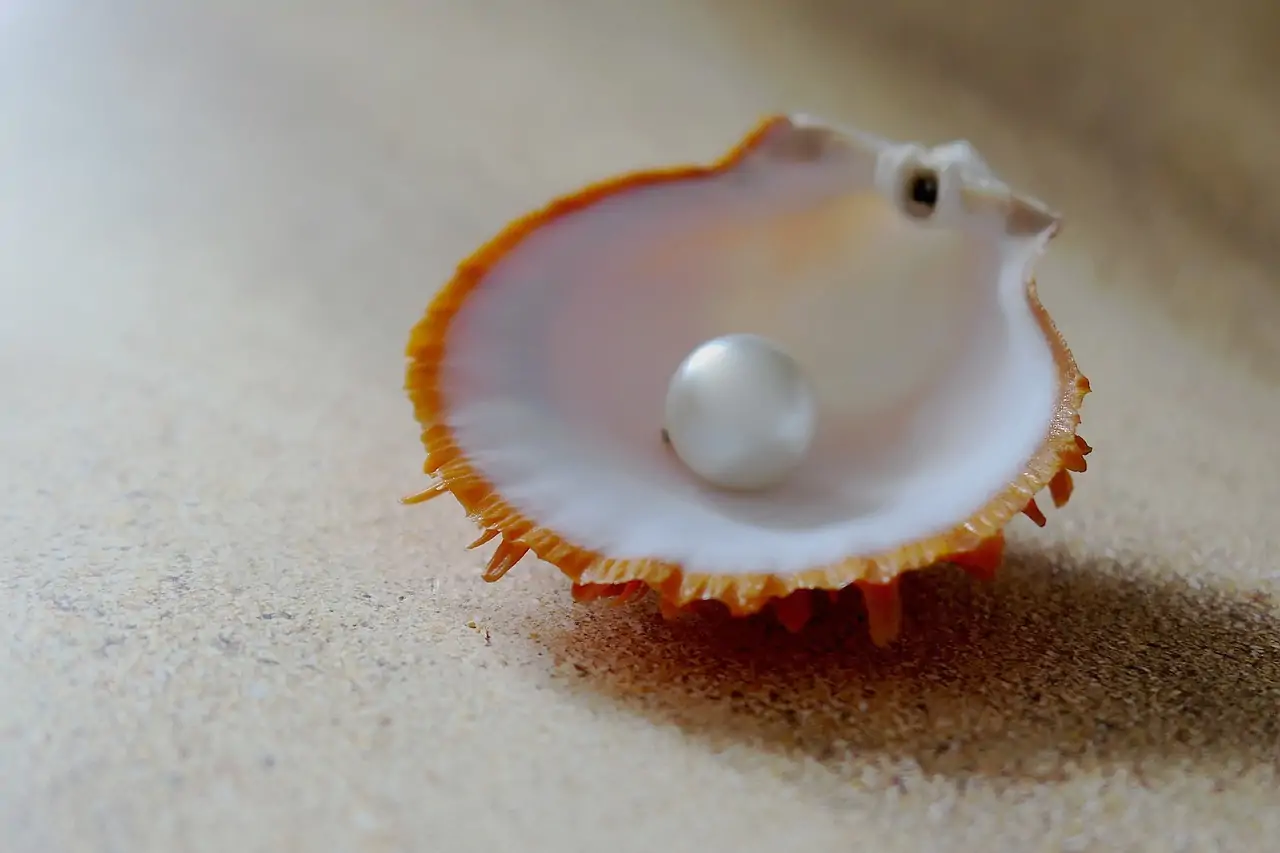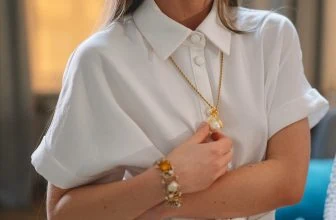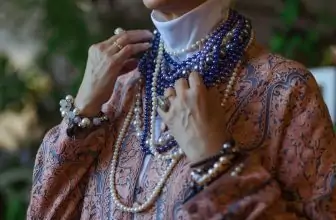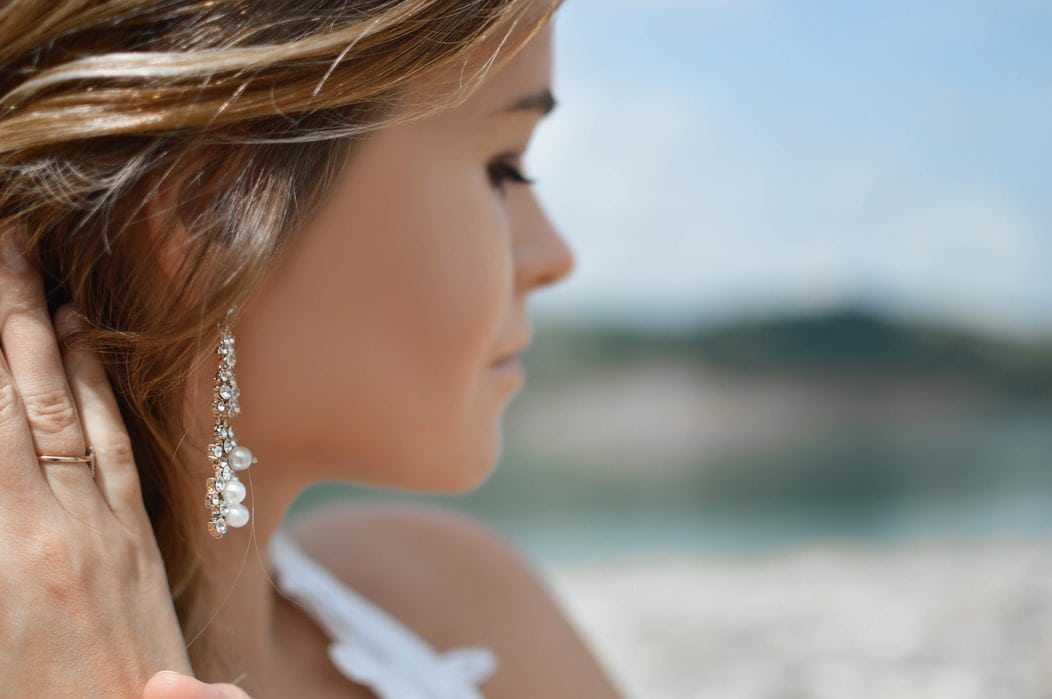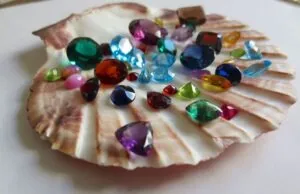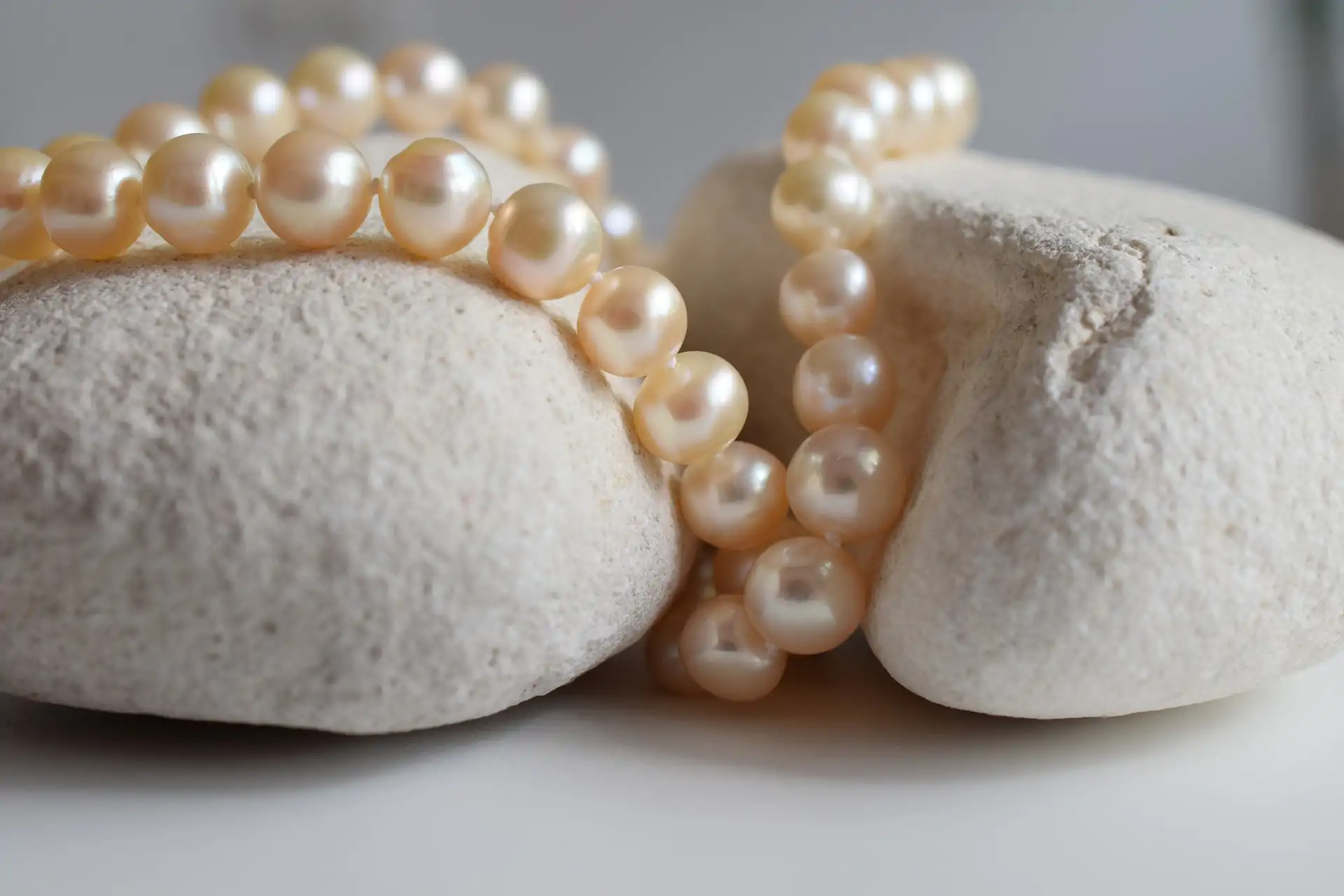
Table of Contents
Not only are freshwater pearls wallet-friendly; they’re also very trendy. With a variety of colors and shapes, they fit right into modern jewelry styles. Let’s take a look at what sets freshwater pearls apart and whether you should consider adding them to your jewelry collection.
What Is a Freshwater Pearl?
Freshwater pearls are created by using freshwater mussels in lakes, rivers and ponds. Most freshwater pearls on the market today come from rivers and lakes in China, although USA and Japan have a small fraction of the market. A freshwater mussel can have up to 50 pearls at a time (compared to the two to five pearls that saltwater oysters can contain).
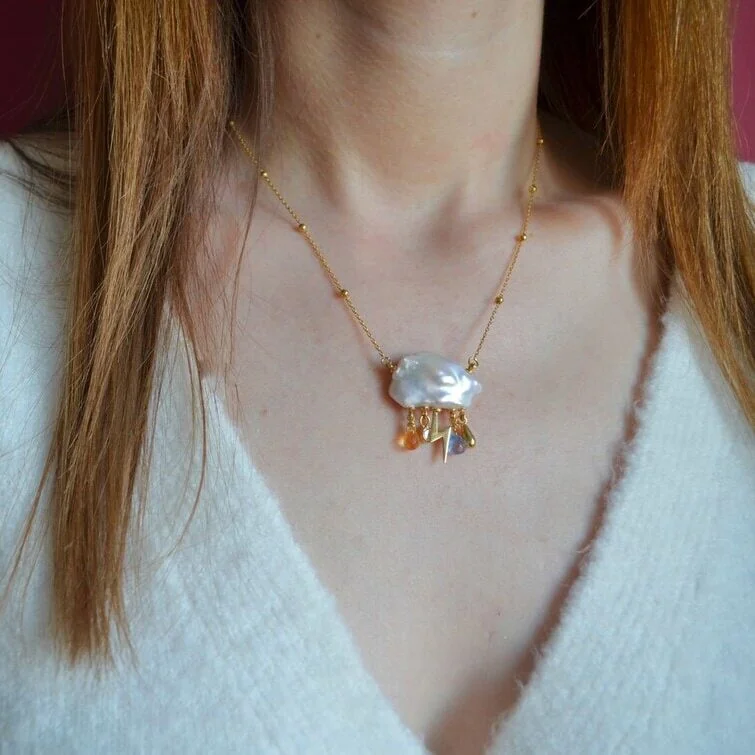
All freshwater pearls have been cultured, meaning that they were grown in pearl farms using science and technology rather than in nature by accident. This is where a trained technician implants an irritant in the mussel to stimulate the formation of a pearl.
While a bead nucleus is commonly used in Akoya and other saltwater pearl farming, with freshwater pearls the method is somewhat different. Here, the tissue of a donor mussel is placed in the host mussel to stimulate nacre secretion.
The result of this method is that freshwater pearls are composed entirely of nacre, as they do not contain a bead nucleus. The thicker nacre generally results in a durable, beautiful pearl.
Freshwater Pearl Colors and Overtones
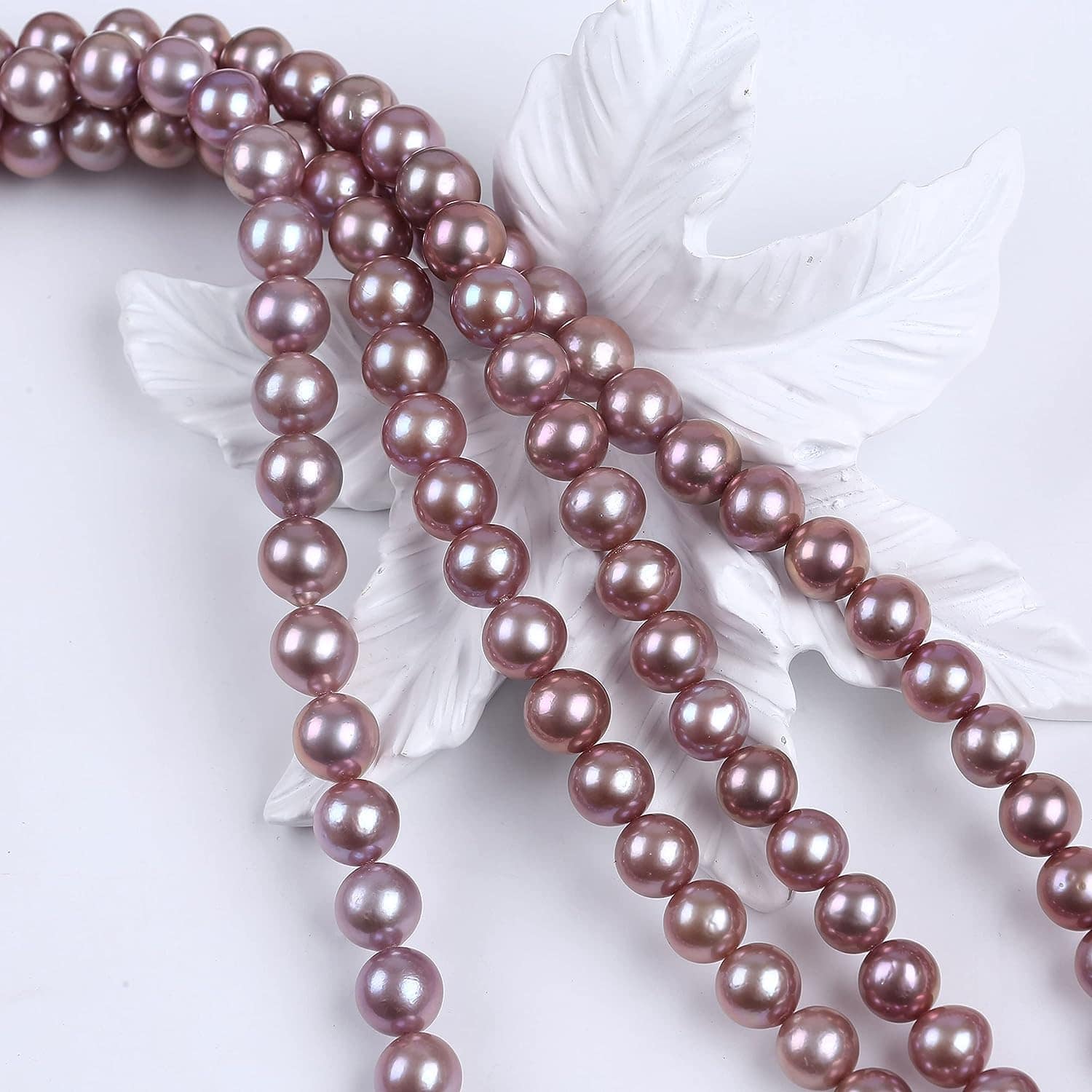
Freshwater pearls come in a wide range of colors, unlike other pearl varieties. The main body colors for these pearls include white, cream, gray, as well as pastel shades such as yellow, lavender, pink and orange. High quality freshwater pearls have overtones of pink, green and blue although lower quality gems do not display any desirable overtones.
The most popular colors for freshwater pearls are white, cream, lavender and black. However, black freshwater pearls are not natural in that they have been dyed to obtain their color. Only Tahitian pearls are naturally charcoal to black in color; all other black pearls on the market have been dyed.
Freshwater Pearl Shapes
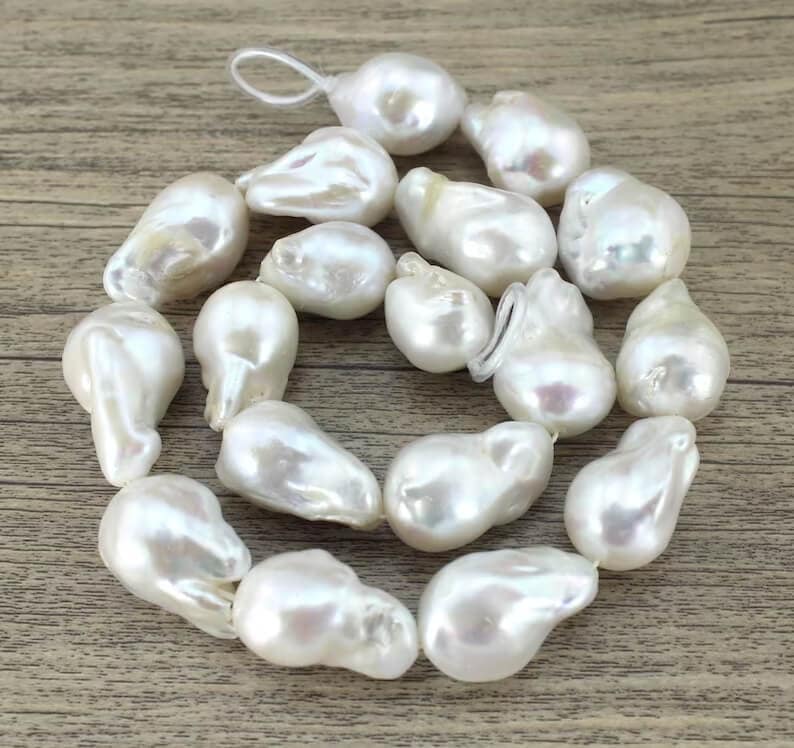
Although pearls are quintessentially perfectly spherical in shape, only about 5% of all pearls are perfectly round. The rest come in a variety of shapes, including near round, button, semi-baroque and baroque. In the past, only round pearls were considered worthy of being set in jewelry but today an increasing number of people are seeing the beauty of irregular shaped pearls.
Most freshwater pearls are oval or near round in shape, while about 30% are baroque or semi-baroque. Round freshwater pearls can be quite rare due to the nucleation process employed by freshwater pearl farmers. As I mentioned above, these pearls are not bead nucleated, which means that they are more likely to form irregular shapes.
Freshwater Pearl Sizes
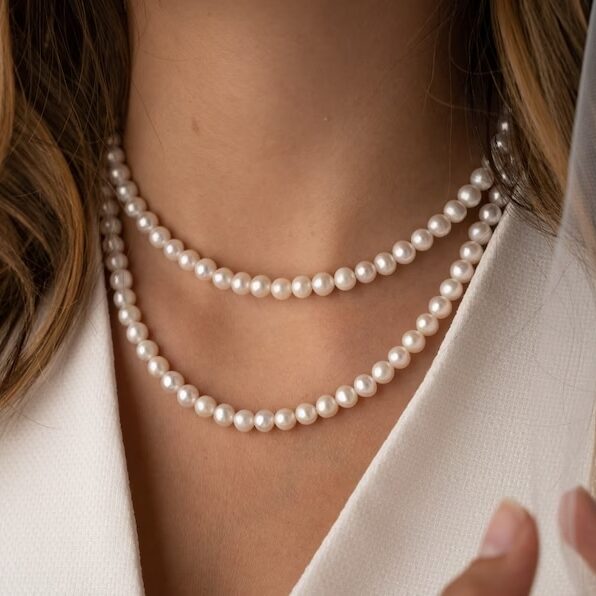
Freshwater pearls vary widely in size, typically ranging from 2mm to 15mm. The majority fall between 6mm and 7.5mm, making them versatile for various jewelry types. However, the increasing demand for larger pearls has led to the cultivation of sizes reaching up to 10mm and beyond.
These larger pearls, often used for statement pieces, showcase their unique luster and beauty. Regardless of size, each freshwater pearl brings its distinct charm and elegance to the table.
Freshwater Pearl Luster
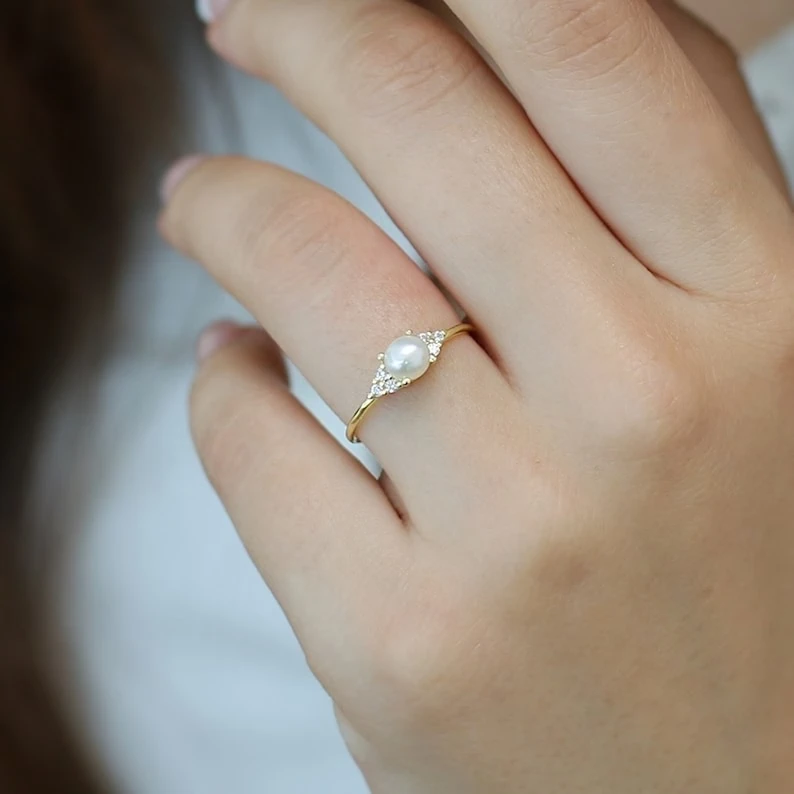
Luster is the most important aspect to consider when buying a pearl. It’s the luster that causes a pearl to shimmer and shine and really catch your eye. The higher the luster of a pearl, the more valuable it is.
Generally, saltwater pearls such as Akoya and South Sea pearls have better luster compared to freshwater pearls. This is a general rule of thumb, but there are always exceptions and it depends on the individual pearls.
Freshwater Pearls Value
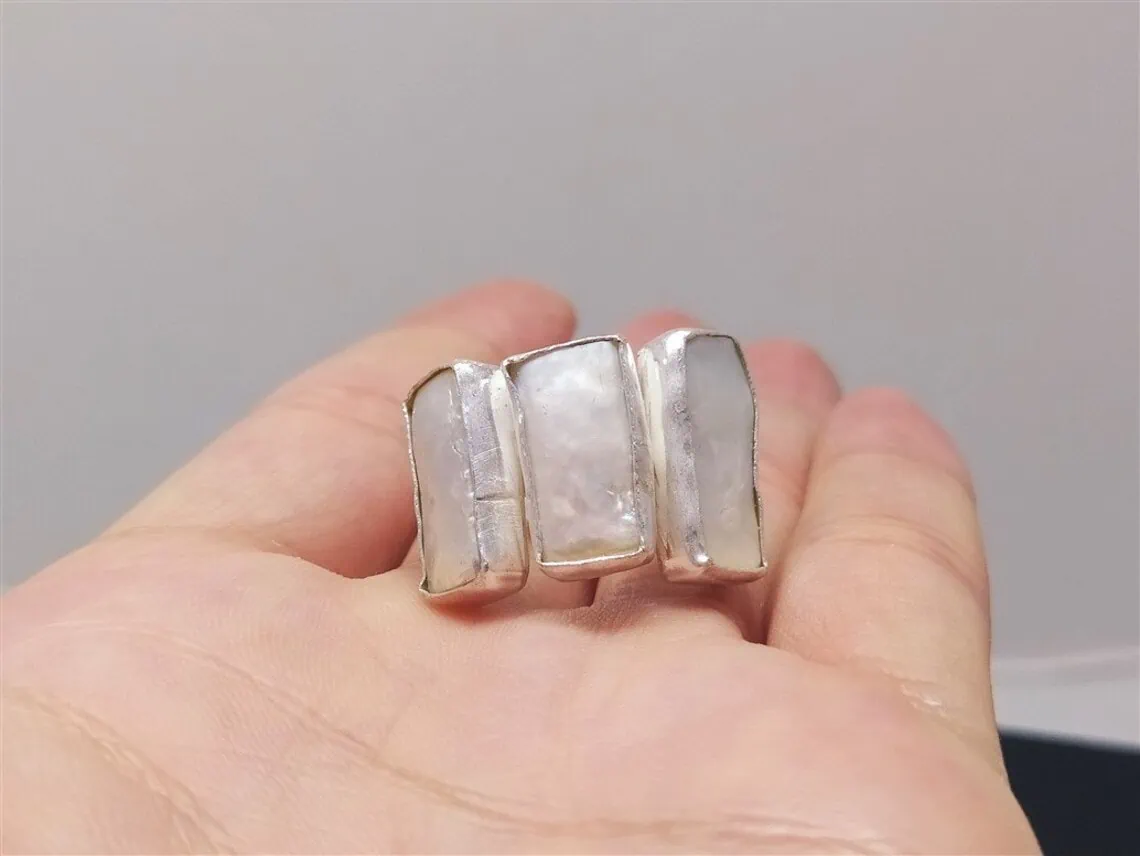
Freshwater pearls, known for their wide variety and accessibility, have a value determined by multiple factors. One of the key indicators of a pearl’s worth is its luster; those with a strong, reflective shine typically command higher prices. Size is another determining factor, with larger, round, and uniform pearls being more coveted. The shape plays a significant role too; while round pearls are often more sought after due to their classic appeal, unique shapes like baroque can also be valuable because of their distinctiveness.
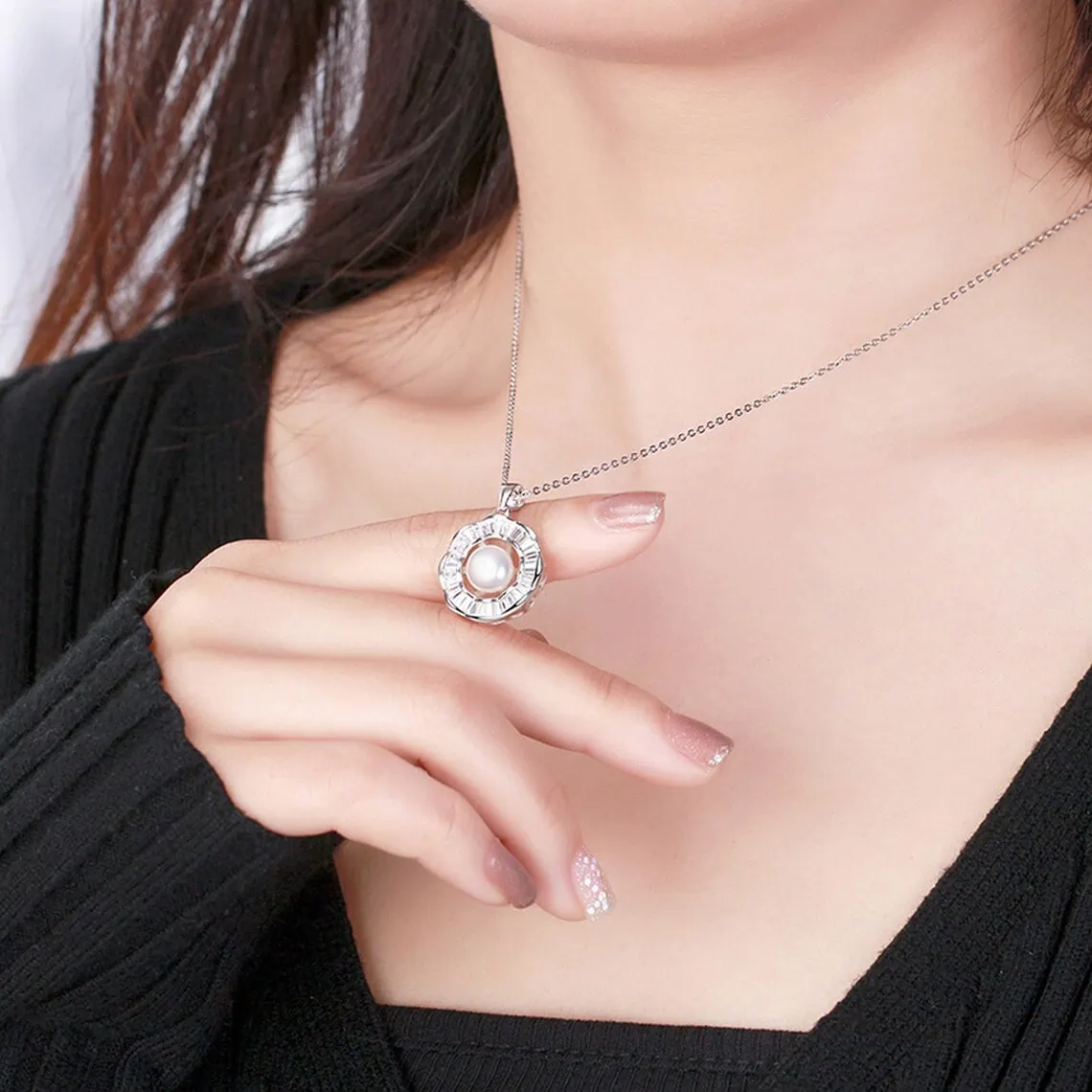
A pearl’s surface quality, color, and the thickness of its nacre also influence its value. Despite these variables, freshwater pearls are usually more pocket-friendly than saltwater varieties. However, top-quality freshwater pearls can still fetch a premium, so it’s crucial to purchase from trusted sources and be well-informed about the pearls you’re considering.
Freshwater Pearl Jewelry
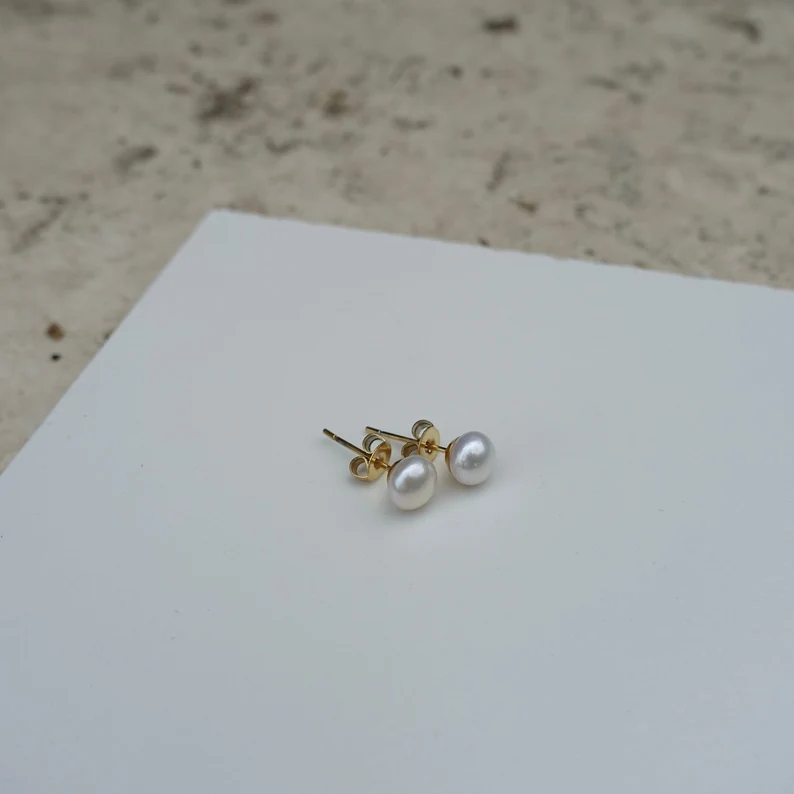
Freshwater pearls can be found in all popular types of pearl jewelry. These include pearl necklaces, bracelet strands, pearl stud earrings, and pearl pendants.
Freshwater pearl studs are a great addition to any jewelry collection. They’re very affordable and suit almost any budget. Pearl studs go great with any outfit and add a level of chicness and style.
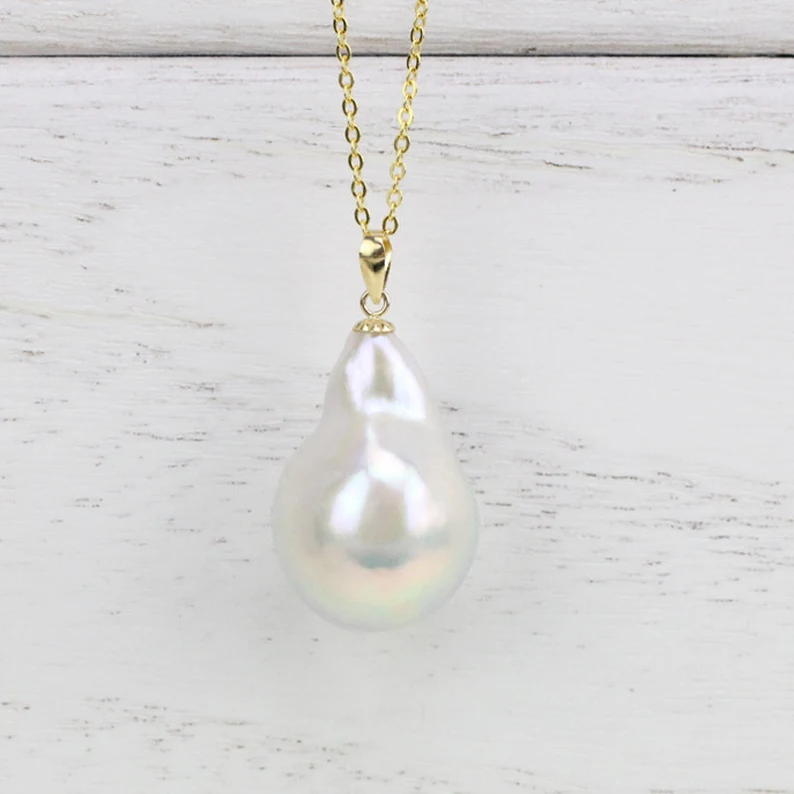
If you want a more unique alternative to the traditional pearl strand, there are many options on the market.
Grading Freshwater Pearls
Freshwater pearls have no universally accepted grading standard but two grading systems are commonly used. This can make it very difficult to compare pearls across vendors and choose the best one for you. Most retailers have their own standards, even though they may follow the A-AAA or A-D grading scale often used for pearls. When grading freshwater pearls, the surface quality, shape and luster of the pearl is evaluated.
The AAA to A Scale
| AAA | Almost flawless, this is the highest quality pearl. Features include: perfectly round, virtually free of surface blemishes and defects with highly reflective luster. Up to 95% surface is blemish free. |
| AA | High luster, with about 90% of surface free of blemishes or defects. Good quality with near round shape. |
| A | Low luster and 70% of surface free of blemishes and defects. Shape is off round. |
Some retailers add a fourth grade, AAAA or AAA+, to this scale. Often retailers do this to add a premium to a high quality pearl and make it seem that the pearl is even better than the highest standard. After all, a pearl graded AAAA must be better than AAA, and therefore the higher price is justified, right? Wrong. Most times, you’ll see that a retailer’s AAAA or AAA+ pearl is the same as a standard AAA pearl.
The Tahitian A-D System
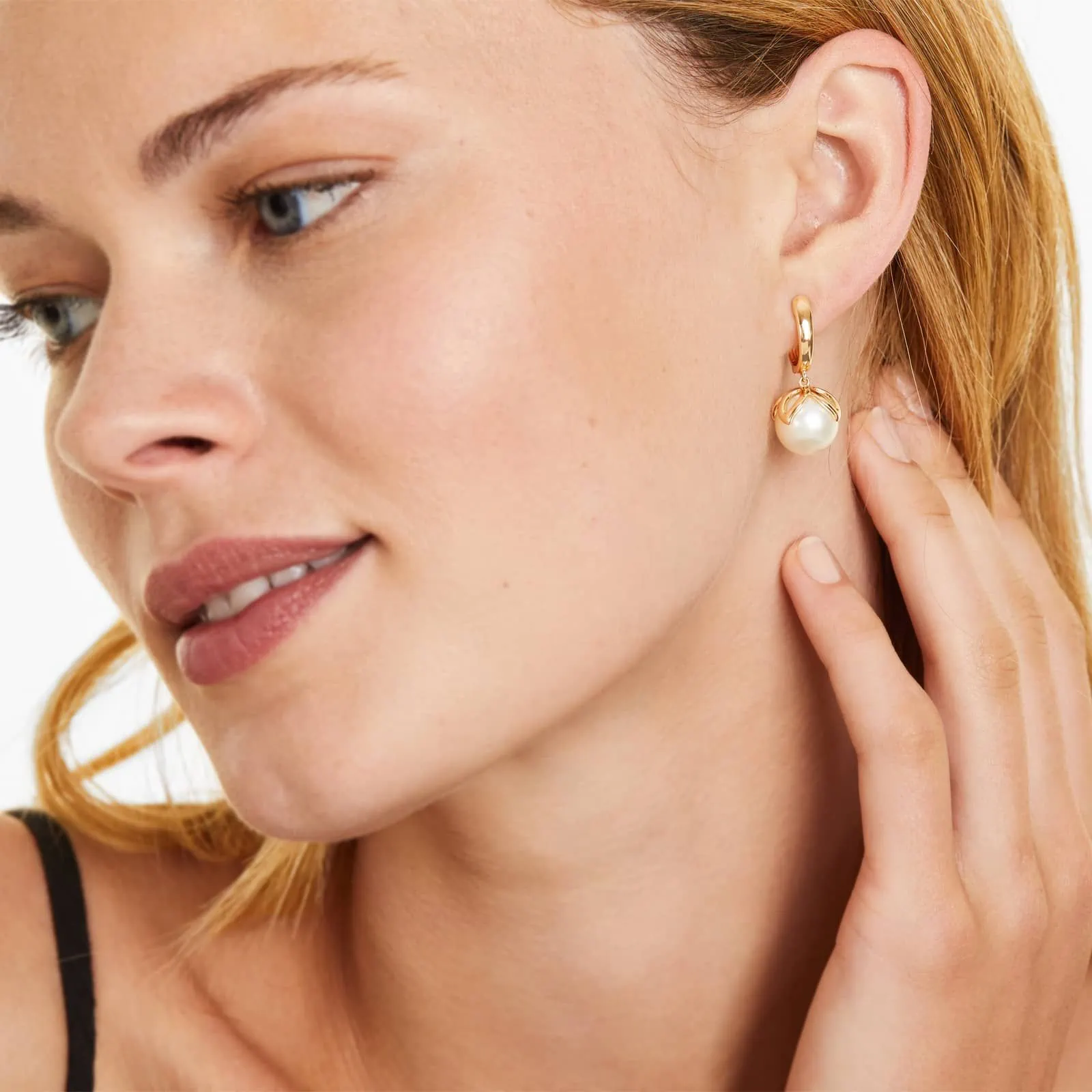
With this method, pearls are graded into four categories with A being the highest. While this system was originally used in French Polynesia to grade Tahitian pearls, it is now used to grade other pearl varieties as well.
| A | The highest quality pearl, with excellent luster and round shape. Less than 10% of minute surface blemishes. |
| B | High luster and round shape. Some noticeable defects that may cover up to 30% of surface area. |
| C | Medium luster. Surface imperfections may cover up to 60% of surface area. |
| D | Over 60% of blemishes and defects cover the surface. Luster is not considered in D grade due to high percentage of defects. |
How to Care for Freshwater Pearls
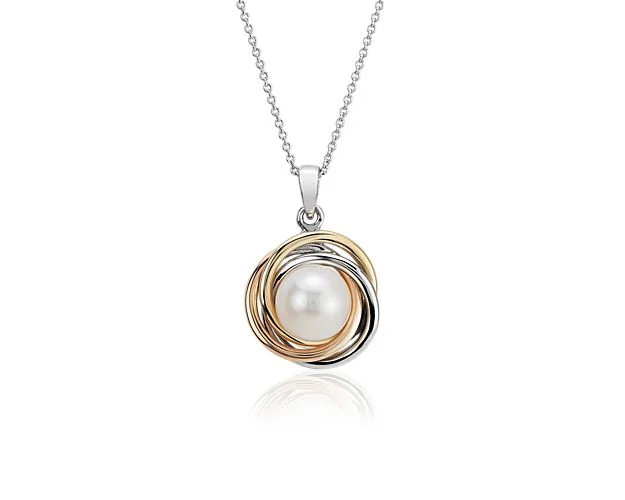
It’s easy to take care of your pearls at home by simply using tepid water and mild detergent to clean them. Ensure that the water you use is not too hot or too cold, as this can damage the surface of your pearls. Use a soft cloth to wipe off any grime and gently rinse the pearls to wash off any residue.
Don’t soak your pearls or submerge them in water. Soaking can damage the nacre as well as the string of the strand, compromising its durability. Avoid using any harsh chemicals or ultrasonic cleaners as these can damage your pearls.
When storing your pearls, avoid direct sunlight or hot environments as these can dry out the pearls and cause them to become brittle and lose their color. Placing a damp cotton ball along with the pearls in a fabric pouch will ensure that they remain hydrated.
Pearls are very soft and must be stored separately to avoid scratches from other objects.
Where to Buy Freshwater Pearls
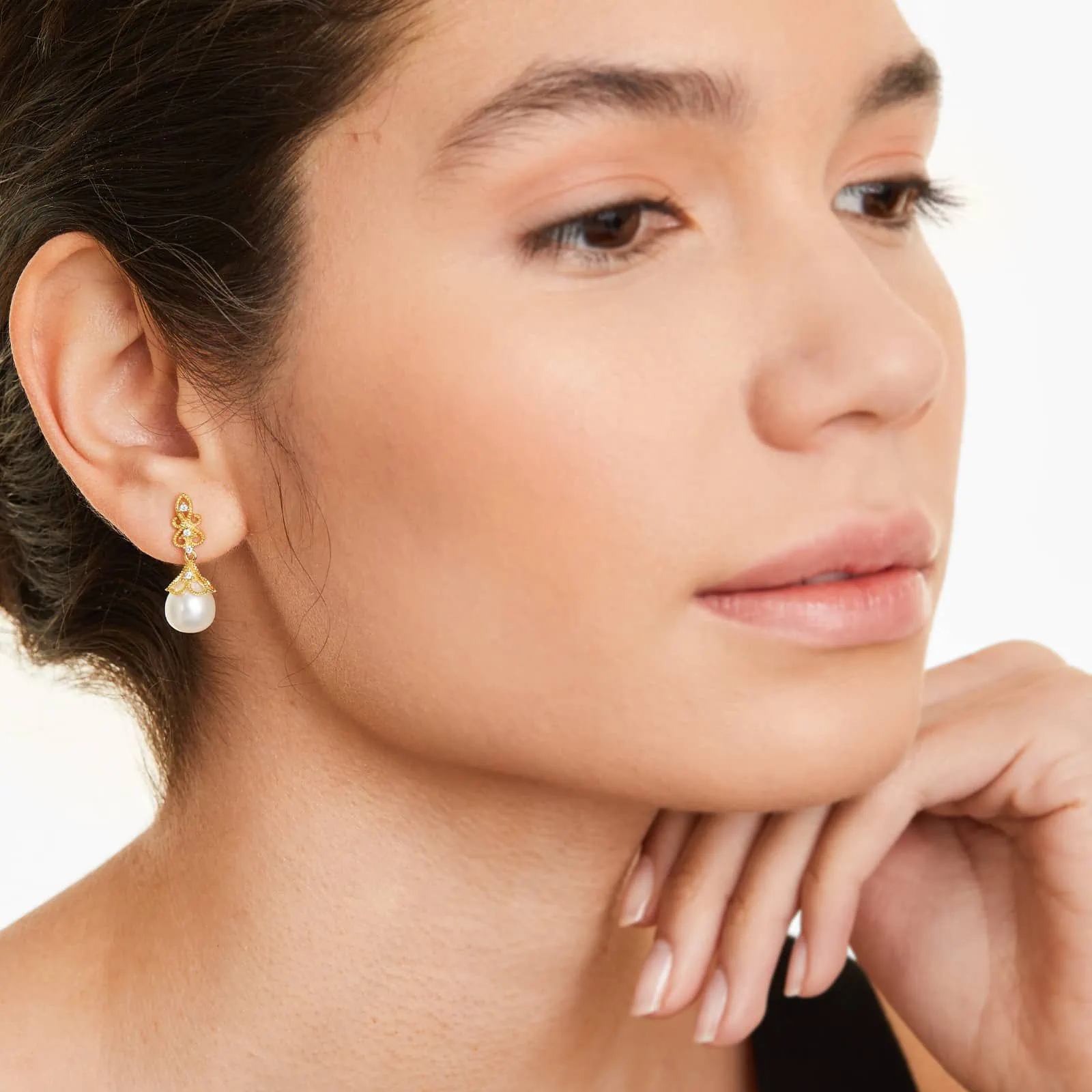
There are many retailers that offer high quality pearls at great prices. For a wider range of choice, taking your search online is a great idea. However, always vet the retailer you choose to purchase from. Ensure that the retailer is reputable, knowledgeable and licensed and offers a solid return policy.
Here’s a look at some of the most popular online stores that offer freshwater pearl jewelry.
- James Allen: Renowned primarily for its extensive diamond collection, James Allen also offers a selection of pearl jewelry. Their easy-to-navigate website makes it simple to find freshwater pearls amidst other gemstone offerings, with detailed imagery ensuring a confident purchase. Browse their collection here.
- Blue Nile: As one of the largest online jewelry retailers, Blue Nile boasts a curated collection of freshwater pearl jewelry. From elegant strands to modern designs, there’s a piece for every pearl enthusiast here. Check their freshwater pearl jewelry here.
- Etsy: A global marketplace for handmade, vintage, and unique products, Etsy is a treasure trove for those seeking artisanal freshwater pearl pieces. From custom-made jewelry to vintage finds, Etsy’s diverse range offers a more personalized shopping experience. Search freshwater pearls here.
- Amazon: The global online marketplace isn’t just for books and gadgets; it’s also a hub for jewelry. Here, you can find an array of freshwater pearl jewelry ranging from mainstream brands to independent sellers. Plus, there’s a good chance to stumble upon vintage pieces and unique, artisan-crafted items. Find freshwater pearl jewelry here.
Wrapping Up
Freshwater pearls, often regarded as nature’s marvels, have captivated humanity for centuries. Their luminous glow, unique shapes, and enchanting hues serve as a testament to the wonders that freshwater mussels can craft from mere grains of sand. Unlike their saltwater cousins, which often exhibit a more uniform appearance, freshwater pearls embrace the beauty of individuality, with each one boasting its own signature character and charm.


